#Plutarque
Text
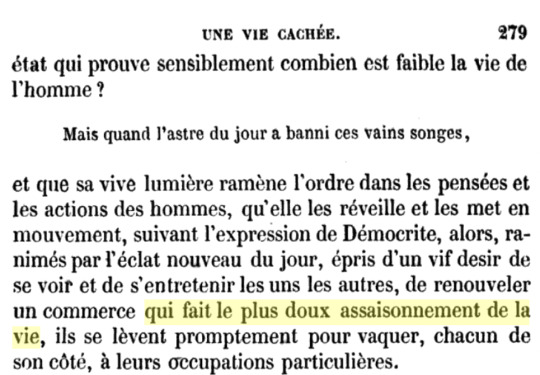
#Plutarque#S'il est vrai que l'on doit mener une vie cachée#Plutarch#Oeuvres Morales#Antiquité#Antique#Classic#Classical#democritus#Démocrite#Amitié#Civilisation#Civilité#entraide
4 notes
·
View notes
Text

“Pour traiter les affaires dont la direction t’a été confiée tu as recours aux services de gens qui manquent de simplicité et de droiture et qui ne ressemblent pas à des outils de bonne trempe, mais à des instruments le plus souvent émoussés et tordus. Vouloir les redresser, crois-moi, ce n’est pas ton rôle, et d’ailleurs ce n’est pas chose aisée. Mais si tu utilises ces gens tels qu’ils sont, à l’instar du médecin qui se sert de daviers pour les dents, d’agrafes pour les plaies, si tu fais montre de douceur et de modération, quoi qu’il doive arriver, une semblable disposition d’esprit te rendra plus heureux que ne te chagrineront l’ingratitude et la perversité des autres. Ce sont des chiens qui aboient : ils jouent leur rôle. Tu dois en être convaincu. Et tu cesseras de te ménager malgré toi une pléthore de motifs de chagrins, ruisselant, comme un terrain creux, en contrebas, dans cette bassesse morale et cette faiblesse de caractère, et de te remplir des vilenies étrangères. Tu connais la théorie de certains philosophes : ils blâment la pitié que les malheureux nous inspirent ; c’est une belle chose de soulager ses semblables, disent-ils, mais il ne faut pas partager leur souffrance et céder ainsi à notre entourage.”
Plutarque, La Sérénité intérieure, trad. Pierre Maréchaux, Ier siècle apr. J.-C.
18 notes
·
View notes
Photo

Alexandre le Grand et la Destruction de Persépolis
En 330 avant notre ère, Alexandre le Grand (356-323 av. J.-C.) conquit l'empire perse achéménide après sa victoire sur l'empereur perse Darius III (r. de 336 à 330 av. J.-C.) à la bataille de Gaugamèles en 331 avant notre ère. Après la défaite de Darius III, Alexandre marcha vers la capitale perse de Persépolis et, après avoir pillé ses trésors, brûla le grand palais et la ville environnante, détruisant des centaines d'années d'écrits religieux et d'art, ainsi que les magnifiques palais et salles d'audience qui avaient fait de Persépolis le joyau de l'empire.
Lire la suite...
2 notes
·
View notes
Photo

(via Un ouvrage de Plutarque ayant appartenu à Montaigne adjugé à près de 370 000 euros à Bordeaux | Le magazine des enchères)
3 notes
·
View notes
Text
Consciences oraculaire, visionnaire, prophétique
Consciences oraculaire, visionnaire, prophétique
“Dionysos”
Dans la Grèce de l’âge archaïque et classique, le savoir par excellence était celui de l’art divinatoire, cet art qui s’intéresse à tout « ce qui est, ce qui sera et ce qui fut ».i Dans De l’E de Delphes de Plutarqueii, Ammonios dit que ce savoir appartient au domaine des dieux, et particulièrement à Apollon, le maître de Delphes, le Dieu appelé ‘philosophos’, dont le soleil, réputé…

View On WordPress
1 note
·
View note
Text
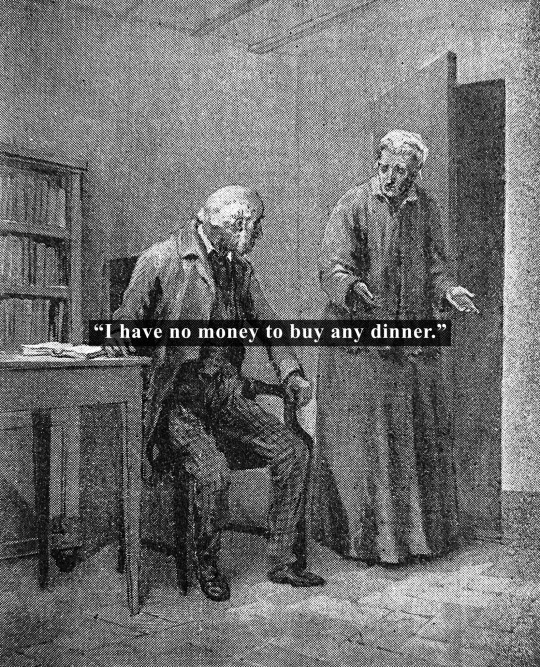

There is one thing even more sad than having no money to buy bread at a baker's, and that is, not to have money to buy medicine at the chemist's.
— Les Misérables, IV.IX.III
Illustrated by Carlo Chiostri (Italian Edition, 1930)
#les miserables#les mis#mabeuf#mother plutarque#chiostri illustrations#illustration#Always crying over those two
51 notes
·
View notes
Text
Mabeuf!!!
Mabeuf is hilarious. He's apolitical, although he respects those who are not, but he also happens to be growing the most political fruit in 1830s France: the pear. Although the connection to Louis-Philippe isn't made here, it does suggest that as much as one may want to remain distanced from politics, circumstances determine how much a person is able to maintain that distance, not the person themself. Mabeuf may have no political opinions, but that doesn't mean that politics don't affect him, or that others can't read politics into his actions (as I just did; he doesn't mean anything with those pears, but I can't see a pear without thinking of Louis-Philippe). More importantly to Mabeuf, only the truly fortunate can really escape politics:
"The Revolution of July brought a crisis to publishing. In a period of embarrassment, the first thing which does not sell is a Flora. The Flora of the Environs of Cauteretz stopped short. Weeks passed by without a single purchaser."
Mabeuf is poor in a similar way to Marius, where he's able to get by and even pay for some "luxuries" (as in, some simple enjoyments and/or a hobby), but his financial stability could disappear very quickly. The publishing crisis after the July Revolution caused just that. Without income from publishing, his situation became much more precarious, and while he still seems content and didn't suddenly become political, the consequences of politics on his life demonstrate the challenges of that position. It's nice that he's not prejudiced in the way Gillenormand is because of his "neutrality," but he's also not advocating for himself when these changes really do affect him. In a way, he's similar to Bishop Myriel, whose community efforts were great in every respect except the political. Mabeuf doesn't have that level of authority, but he shares many sentiments with the bishop: love of people (it's why he goes to church), respect for nature and knowledge, and a generally kind attitude. His lack of political beliefs hurts him more than it hurts his community, but it's still interesting to see this "flaw" repeated in a different way.
It's intriguing how Mabeuf's apolitical stance is linked to his distaste for violence as well. For instance, while he's friendly with several Bonapartists because he won't condemn their opinions, he's also extremely uncomfortable living at "Austerlitz," which shares the name of a famous battle during the Napoleonic Wars. Additionally, he flinches at all violence, with the example given being linked to the French Revolution. Weapons from the Invalides were used to storm the Bastille, so while Mabeuf is just avoiding a place because he dislikes cannons, he's also overlooking the way that politics is all around him because he detests violence. His stance on violence isn't wrong - we see a variety of justifiable positions on violence in the novel, with Valjean falling in the "no violence at all" camp as well - but the (a)political framing of his nonviolence is telling. It may be that he dislikes politics because he sees it as inherently violent (which is fair, given that he's lived through many violent moments in French history), which says as much about his experiences with politics as it does his personal feelings.
Even though Mabeuf's avoidance of politics is definitely a bad thing in a book with a very political message, I really love his character. He just loves books and plants! That's great for him, and it would be a pretty ideal way of life if he lived in a system that didn't place his livelihood at constant risk. He also has what is probably the best response to being asked about relationships that I've read:
"However, he had never succeeded in loving any woman as much as a tulip bulb, nor any man as much as an Elzevir. He had long passed sixty, when, one day, some one asked him: “Have you never been married?” “I have forgotten,” said he. When it sometimes happened to him—and to whom does it not happen?—to say: “Oh! if I were only rich!” it was not when ogling a pretty girl, as was the case with Father Gillenormand, but when contemplating an old book."
"I've forgotten" is definitely the funniest way to answer that question, and I love that books are his main motivation in everything. Hugo's a bit crueler about Mother Plutarque's similar avoidance of relationships, saying "None of her dreams had ever proceeded as far as man. She had never been able to get further than her cat." "Proceeded" implies that love of a man would be better than love for her cat, which also suggests that she should have gotten married. Granted, this is only implied here, but it does seem to be another instance of the strange tension between there being a lot of unmarried, somewhat sympathetic women in this book and Hugo thinking that marriage/motherhood is the ultimate goal for women. Mother Plutarque seems quite content with her cat, though, so if it weren't for the issue of poverty, she and Mabeuf would have been pretty happy with their very bookish lives.
#les mis letters#lm 3.5.4#mabeuf#mother plutarque#I think that Mabeuf and Mother Plutarque basically reached the pinnacle of the convent gardener lifestyle#before poverty caught up to them#and I really wish that he'd been able to keep being a bibliophile in peace#his story always makes me so sad#even if his words and his pears make me laugh
42 notes
·
View notes
Quote
To read aloud is to lend authority to your reading.
Victor Hugo, Les Misérables (transl. C. Donougher)
#quotes#les misérables#les mis#les miserables#victor hugo#hugo#classics#literature#mere plutarque#reading#reading aloud
4 notes
·
View notes
Text
Fables et fabulistes : Plutarque - Philosophe- moraliste et fabuliste Grec (46-125ap JC)
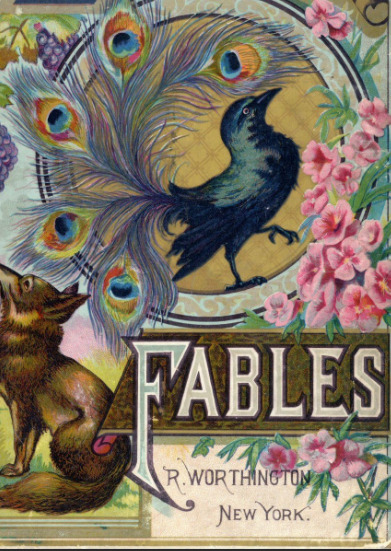
View On WordPress
0 notes
Text
Captain Blake has amnesia.
First off, it's @vicompte-de-latarteaucoing who noticed this.
Let me explain;
Blake didn't know what Olrik looked like in Le Secret de L'Espadon because he'd never met him before.
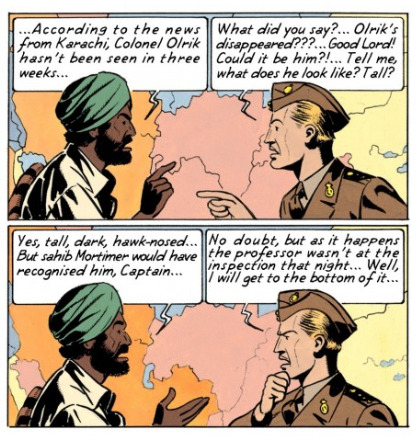
Le Secret de L'Espadon, by E. P. Jacobs (p. 29, tome 3)
However, in Le Baton de Plutarque (which is set before Le Secret de L'Espadon), Blake has a small talk with Olrik and even has dinner with him.
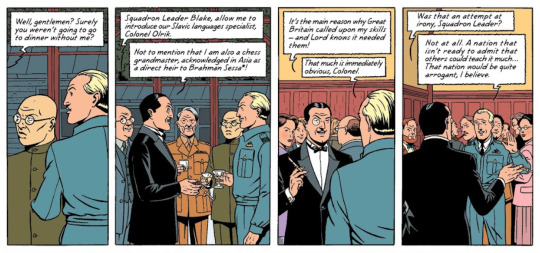
Le Baton de Plutarque, by A. Juillard et Y. Sente (p. 35)
Has he sudently lost all his memories of the very talented Colonel Olrik? ...Or are the authors of Le Baton de Plutarque inconsistent with the original work?
I don't think it would be a bad thing if the new authors bothered to reread the E. P. Jacobs albums…
27 notes
·
View notes
Text

“Car le laxisme, qu’une certaine jeunesse mal élevée confond avec la liberté, laisse libre cours au pouvoir de despotes bien plus intraitables que les maîtres d’école et les pédagogues de l’enfance : ces puissantes passions qui, pour ainsi dire, brisent leurs chaines.”
Plutarque, Comment écouter, trad. Pierre Maréchaux, Ier siècle apr. J.-C.
15 notes
·
View notes
Photo
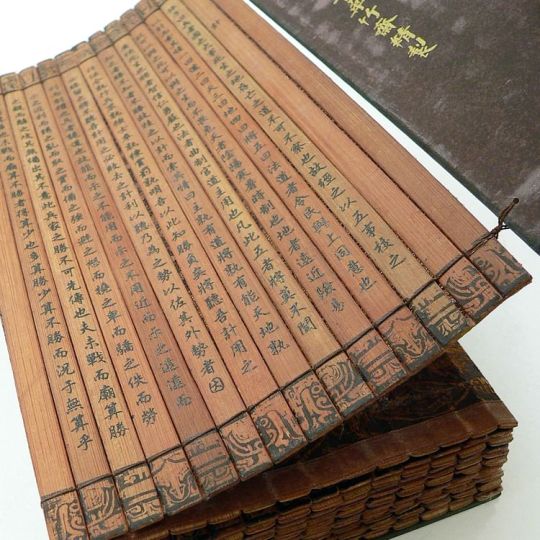
Sources Historiques
L'Histoire (du grec ἱστορία, qui signifie "apprentissage ou connaissance par enquête") peut être considérée comme désignant le passé en général, mais elle est généralement définie comme l'étude du passé à partir du moment où il existe des sources écrites.
Lire la suite...
3 notes
·
View notes
Text

Blake et Mortimer - T23 - Le Bâton de Plutarque
51 notes
·
View notes
Text
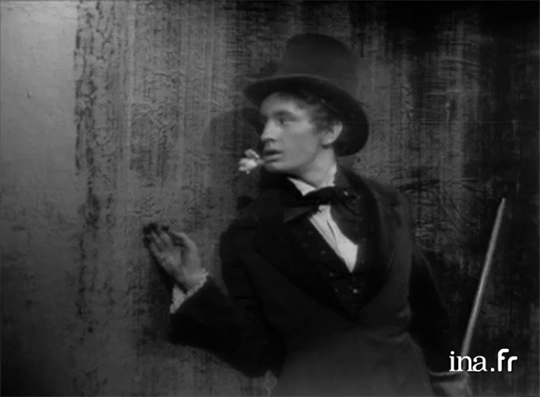


LES MIS LETTERS IN ADAPTATION - Mother Plutarque Finds No Difficulty in Explaining a Phenomenon, LM 4.4.2 (Le Théâtre de la jeunesse: Gavroche 1962)
Montparnasse on the hunt at such an hour, in such a place, betokened something threatening. Gavroche felt his gamin’s heart moved with compassion for the old man.
What was he to do? Interfere? One weakness coming to the aid of another! It would be merely a laughing matter for Montparnasse. Gavroche did not shut his eyes to the fact that the old man, in the first place, and the child in the second, would make but two mouthfuls for that redoubtable ruffian eighteen years of age.
While Gavroche was deliberating, the attack took place, abruptly and hideously. The attack of the tiger on the wild ass, the attack of the spider on the fly. Montparnasse suddenly tossed away his rose, bounded upon the old man, seized him by the collar, grasped and clung to him, and Gavroche with difficulty restrained a scream. A moment later one of these men was underneath the other, groaning, struggling, with a knee of marble upon his breast. Only, it was not just what Gavroche had expected. The one who lay on the earth was Montparnasse; the one who was on top was the old man. All this took place a few paces distant from Gavroche.
The old man had received the shock, had returned it, and that in such a terrible fashion, that in a twinkling, the assailant and the assailed had exchanged rôles.
#Les Mis#Les Miserables#Les Mis Letters#Les Mis Letters in Adaptation#Jean Valjean#Valjean#Montparnasse#Gavroche#Gavroche Thenardier#LM 4.4.2#Le Théâtre de la jeunesse#GET HIM JEAN#pureanonedits#lesmisedit#lesmiserablesedit
53 notes
·
View notes
Text
De l’E de Delphes
De l’E de Delphes
“Plutarque”
Au temps de sa splendeur, on trouvait à Delphes dans le Temple d’Apollon, des objets votifs qui avaient la forme de la lettre grecque ε, epsilon. Ils étaient en bois ou en bronze, et Livia, la femme de l’empereur César Auguste avait même, quant à elle, fait don aux prêtres d’un ε en or.
Un ε majuscule était aussi gravé sur le frontispice du temple, dans le pronaos, étant ainsi…

View On WordPress
0 notes
Text
God today's chapter was insane! Previously I had mentioned Valjean's and Cosette's similarities and differences and here, we get to see something like that too. Montparnasse and Valjean can again be youth vs. the old, the vain vs. the humble etc. but the one thing they have in common is their criminal background. And it's simultaneously relieving and heartbreaking that Valjean finally gets to talk to someone about his past, especially after his traumatic experience witnessing the chain-gang from the previous chapters. Relieving because his first attempt at sharing his past (when Cosette had asked him) was unsuccessful due to his more-than-likely PTSD-induced panic attack, so ranting to Montparnasse was probably the first time in a looong time he was able to say out loud the wrongs that have been done to him, and to get into the true reason why prison was so horrible— because the effects of it never end:
Life will become monstrous all about you. To go, to come, to breathe, will be just so many terrible labors.
But its also heartbreaking because we know that Montparnasse won't do anything. He definitely won't change his ways (though to his credit, he thinks about it), and he is ultimately too vain to care about the traumatic past this weirdly strong stranger had just dumped on him. At best, he thinks Valjean is mad. At worse, he believes his past but doesn't believe in the severity of being sent to prison. After all, it does sound like a tall tale used to scare children from doing wrong, even though we the readers know it was all true. So either way, it seems like Valjean's heartfelt and poignant sharing was all for nothing
...except it did have an effect; Valjean may not have been able to help Montparnasse, but he had indirectly helped Mabeuf in the end. Valjean's words didn't have an sway on Montparnasse, but they sure had an effect on Gavroche, who listens to Valjean's whole rant and, despite starving himself, steals Valjean's wallet from Montparnasse and tosses it to Mabeuf. The selflessness and generosity that Valjean promotes thus still has an importance! The intended audience had ignored it, while the real audience had picked it up and put it to use.
“That has fallen from heaven,” said Mother Plutarque.
Valjean and Gavroche both share this heaven-like comparison now and once again, we are invited to see their similarities. Good and kind despite their circumstances, brave, selfless etc. etc... If Valjean had known Gavroche was present, he would have been very proud of the child.
#bit of a digression but this is the second time we see a thenardier child helping mabeuf! first being eponine#sets them in contrast to their criminal parents#BUT also their main motives for helping mabeuf are different: eponine for (mostly) personal means and gavroche for selfless means#thoughts thoughts...#les mis#les mis letters#les mis daily#lm 4.4.2#valjean#montparnasse#gavroche#syrup ramble#syrup talks about lit
37 notes
·
View notes